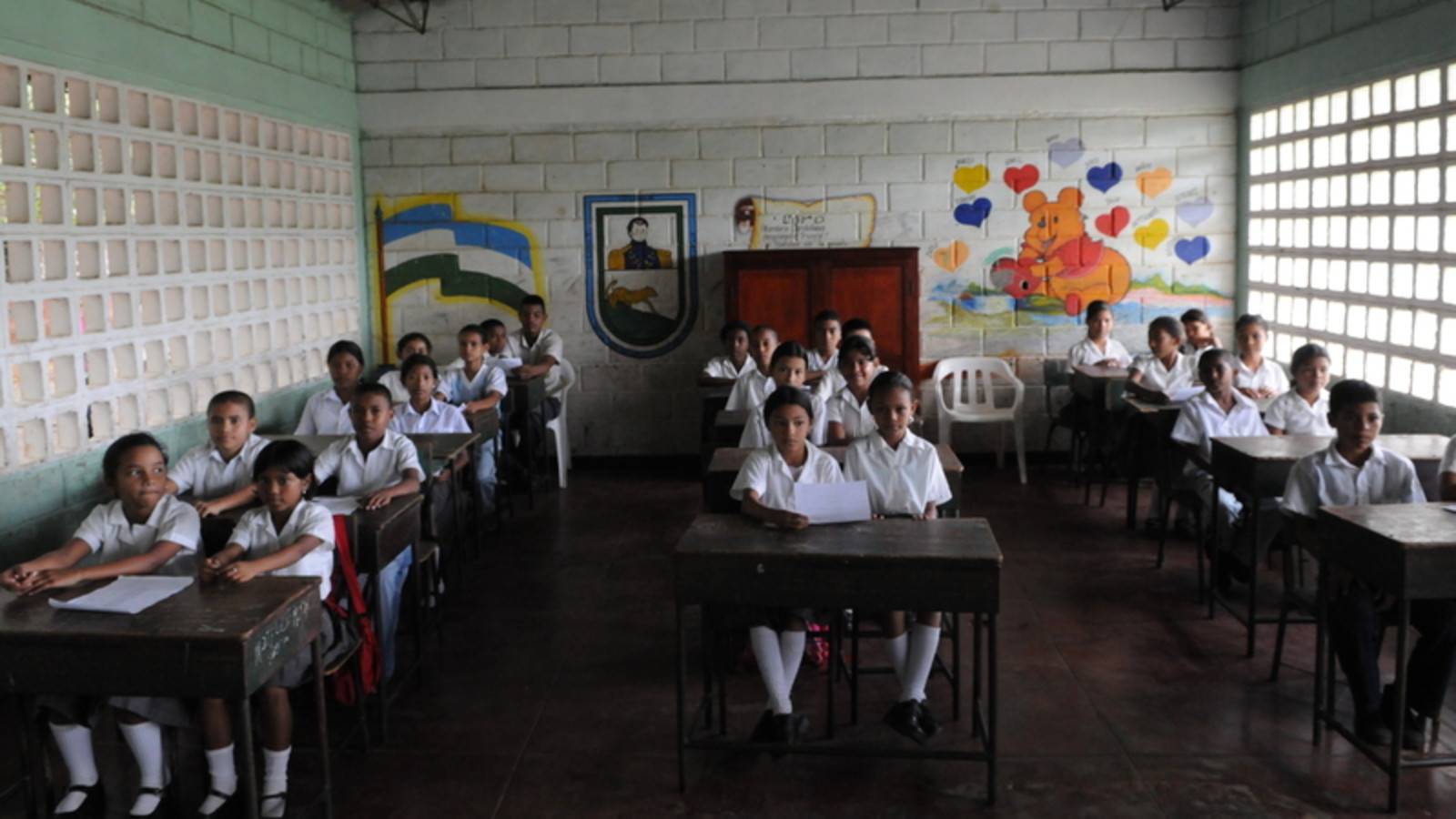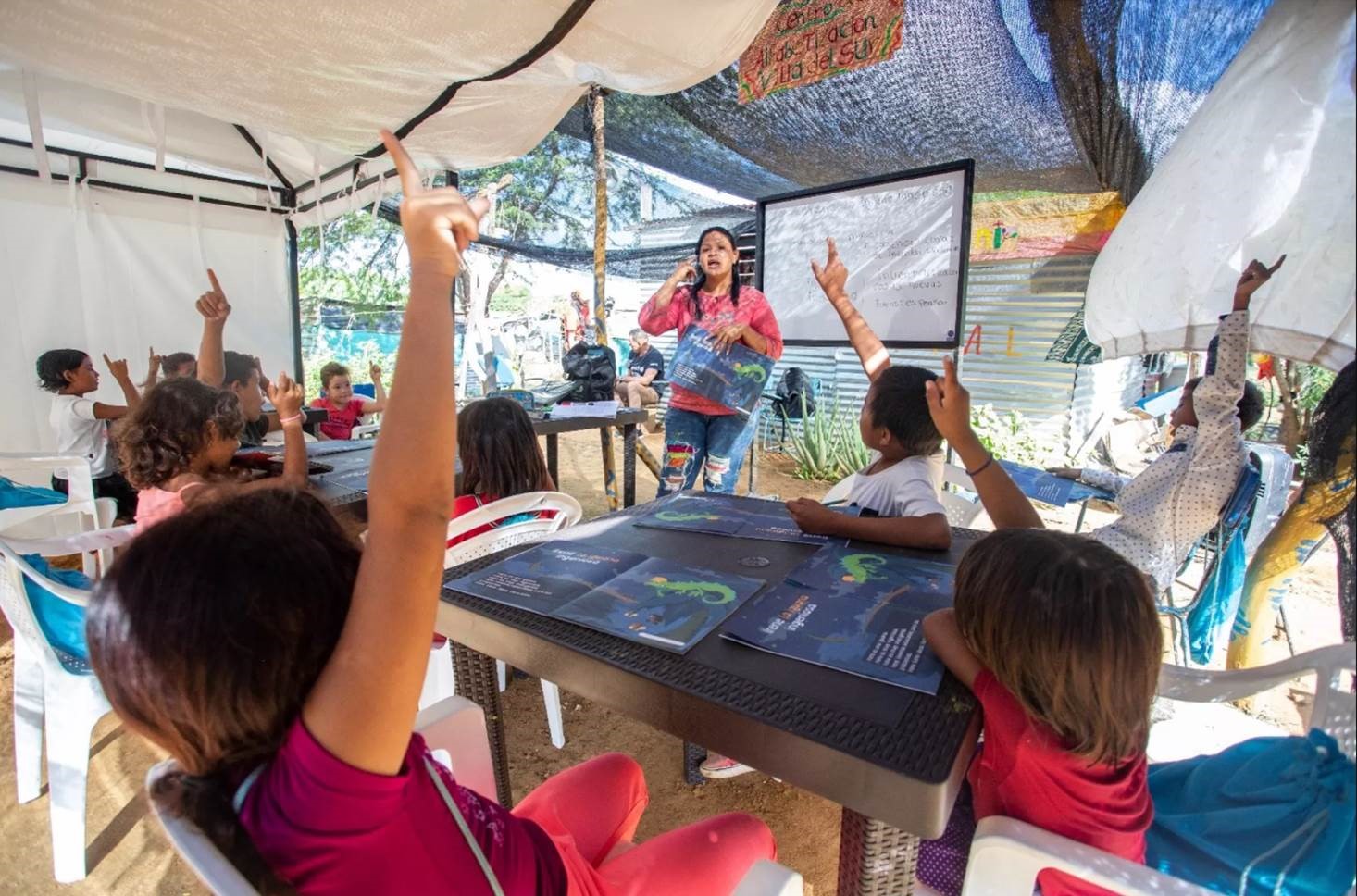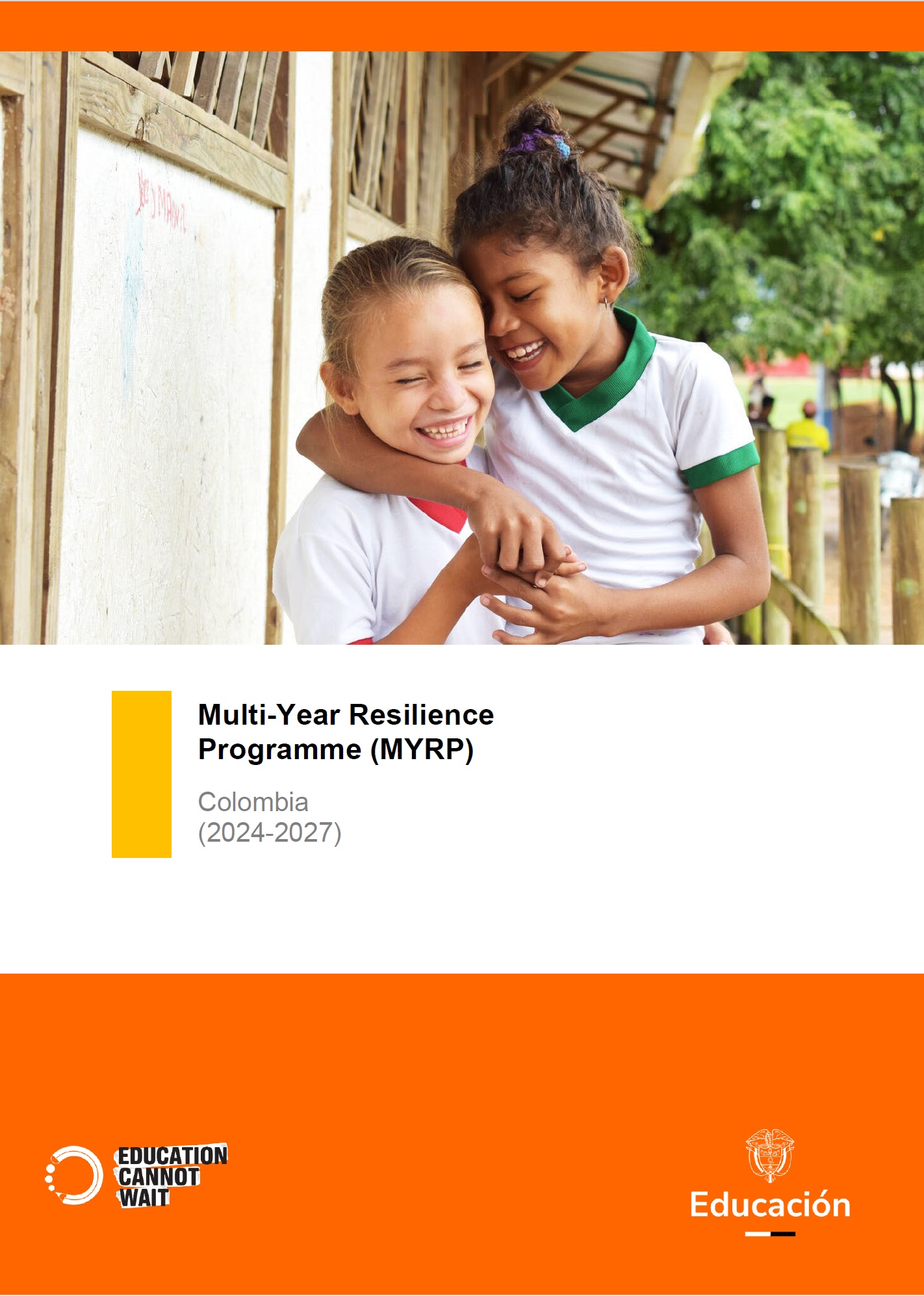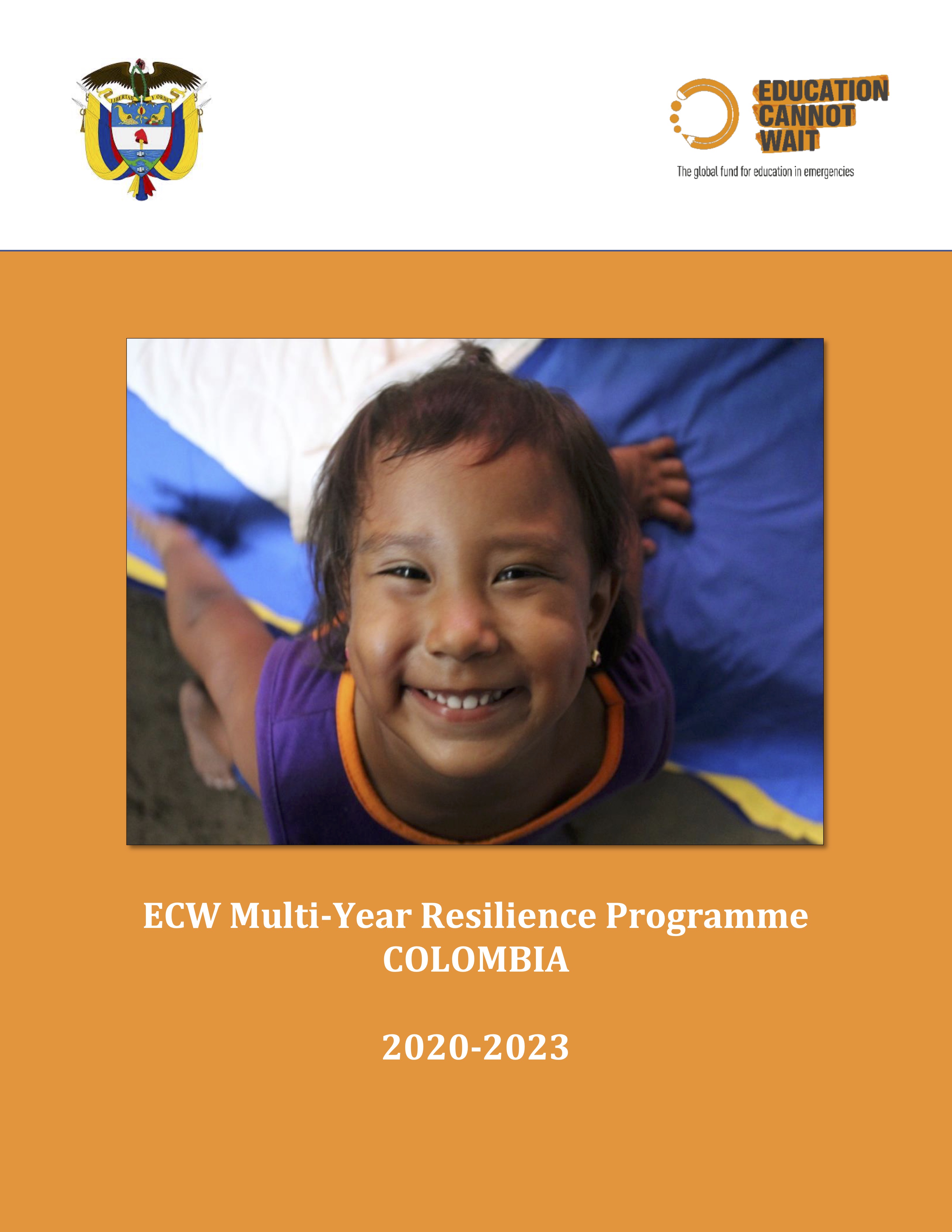ECW in Colombia
Millions of Venezuelan refugees and migrants have fled the crisis in their home country seeking refuge in neighbouring countries. In this mass exodus, vulnerable girls and boys are at high risk of exploitation and abuse. Colombia hosts the largest number of refugees and migrants from Venezuela, ranking as the second largest refugee host country in the world. To be protected, children are in dire need of assistance and reintegration into the formal school system. Since 2019, Education Cannot Wait (ECW) has supported partners in Colombia to help Venezuelan refugee and migrant students transition back to formal education and strengthen foundational skills. This is part of the Fund’s response to the impacts of the Venezuelan regional crisis, also in Brazil, Ecuador, Peru and Venezuela.
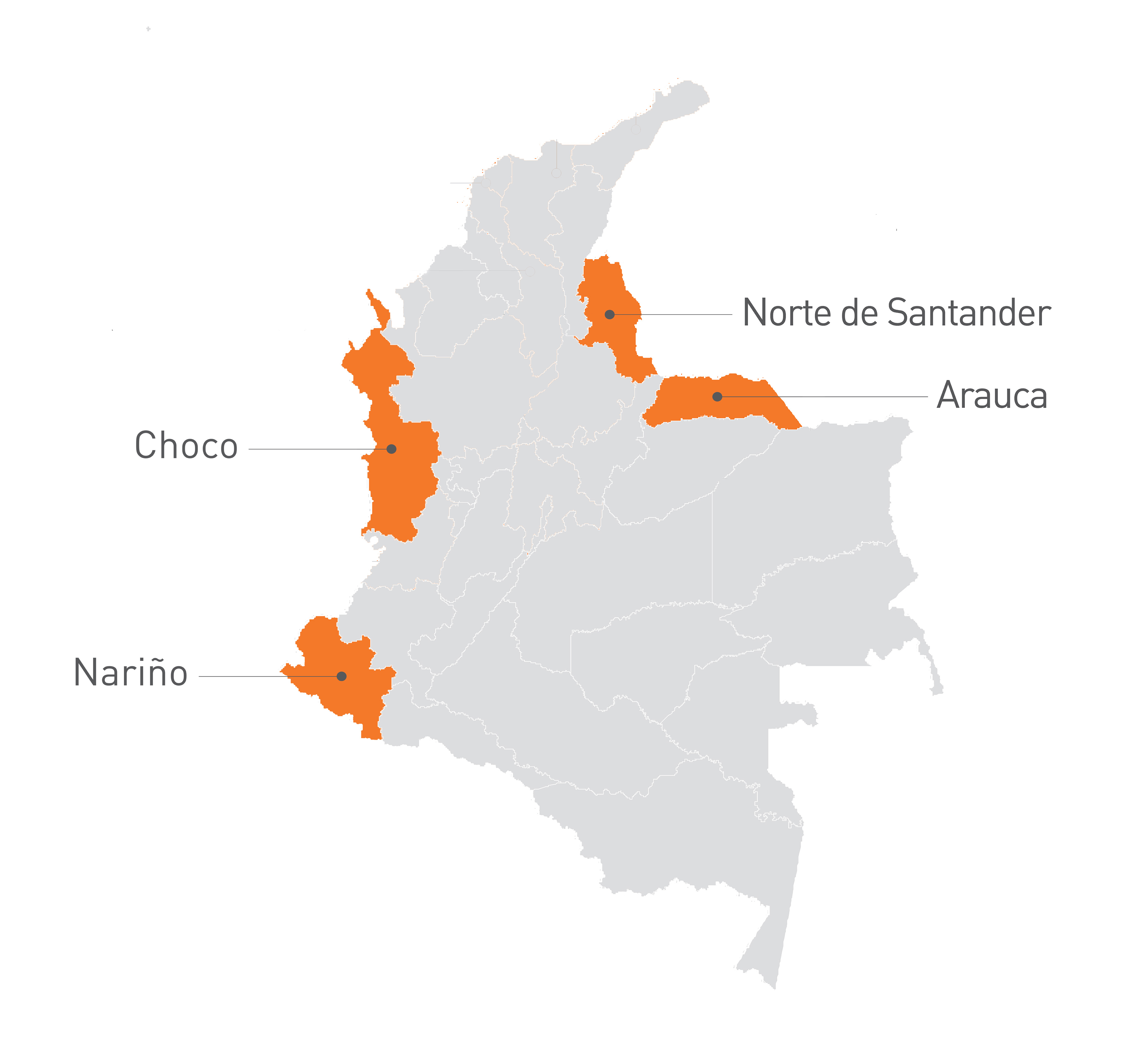
Investments
Financial Information
National Counterparts
Ministry of Education
Results
Additional Results
- Percentage of children and adolescents (grades 2 or 3) who achieve at least a minimum proficiency level in social and emotional learning: 92%
- Percentage of children and adolescents (grades 2 or 3) who achieve at least a minimum proficiency level in math: 70%
- Number of teachers/administrators trained in mental health and psychosocial and psychological support topics: 1,399
- Number of children and adolescents who receive ECW-supported remedial classes: 1,465
COVID-19 Results
Programme Info
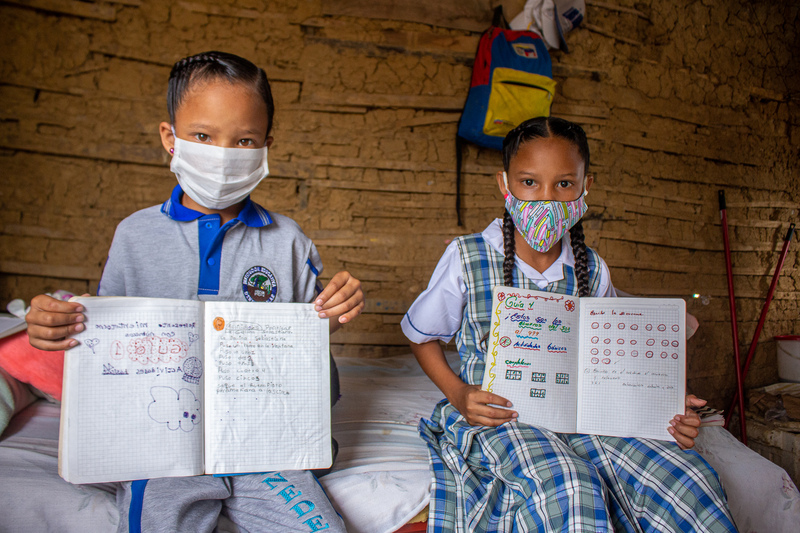
Colombia has maintained an open-door policy, allowing children from Venezuela to access the education system, including a series of explicit measures to guarantee the right to education regardless of the legal status of the child. Despite these efforts, economical constraints, discrimination, and violence, including gender-based violence, xenophobia, and bullying, as well as vulnerabilities caused by intersectionalities of age, gender, (dis)ability and migration status, among other factors, keep them behind in accessing education and learning.
A holistic response to this context requires addressing the humanitarian crisis caused by armed conflict, massive internal displacements, and the Venezuelan migration crisis, while also supporting the country’s education system and its actors to be able to respond to the longer term impacts of this complex crises and to build resilience towards emerging challenges in light of the instabilities and climate risks within Colombia’s borders and beyond. With this aim, ECW builds on the impact of its First Emergency Response (FER) investments in Colombia and continues its support through two rounds of Multi-Year Resilience Programme (MYRP) fundings.
Programme Components
-
Ensuring access to education for refugee and migrant children and adolescents as well those internally displaced, by identifying those out of school and supporting their (re)integration into flexible and tailored learning pathways.
-
Improving holistic learning outcomes, ensuring refugee, migrant and internally displaced children and adolescents gain the foundational learning and life skills they need to thrive, live together peacefully and free from discrimination.
-
Promoting safe and protected learning environments, by prevention and response to any forms of violence in school including gender-based violence, and empowering children and adolescents, particularly girls.
-
Capacity development of education actors and communities, including targeted capacity development for female teachers, in support of gender-transformative and disability inclusive education.
For more information on ECW's work in Colombia, please contact Country Lead Dianah Nelsen (dnelson@unicef.org) and Programme Manager Vina Barahman (vbarahman@un-ecw.org).

